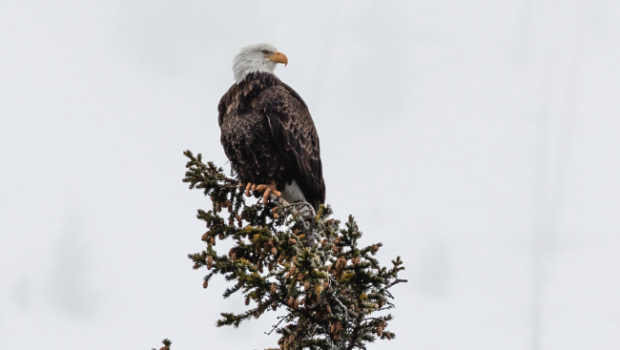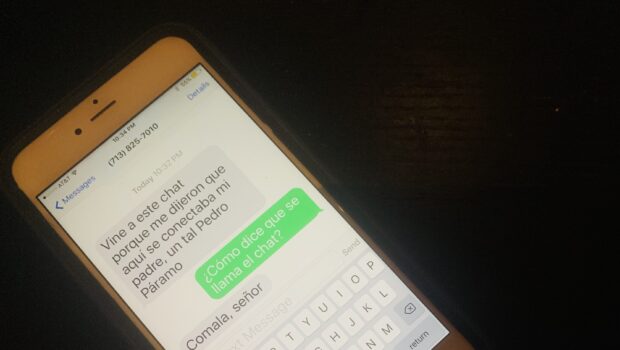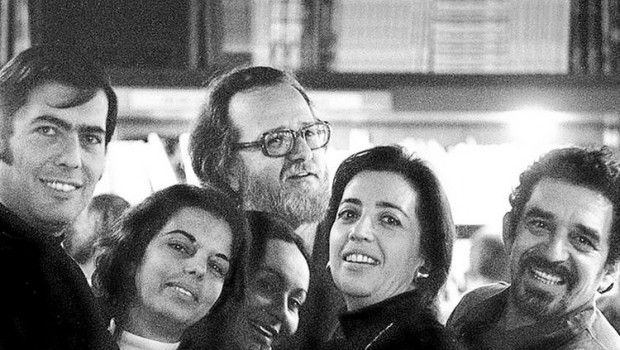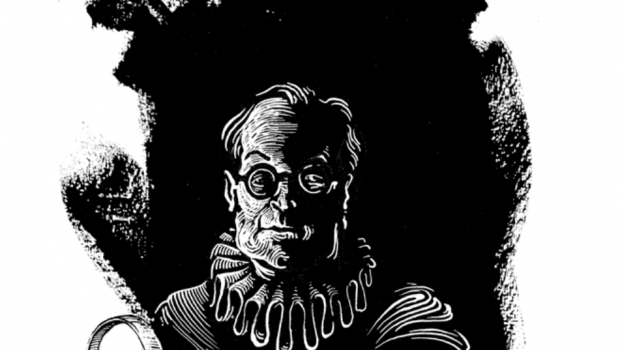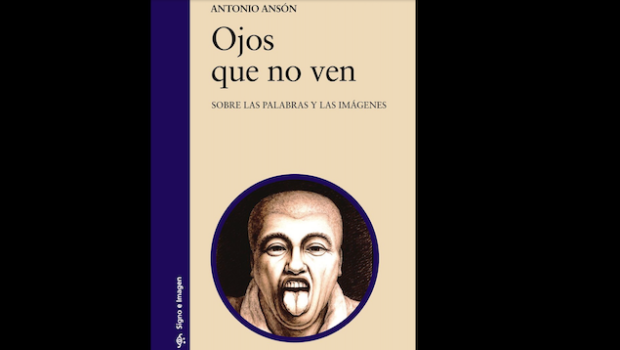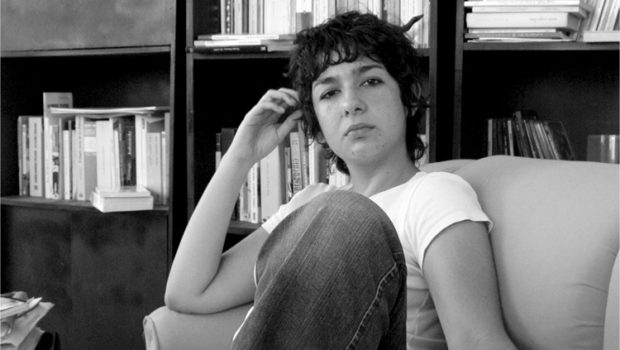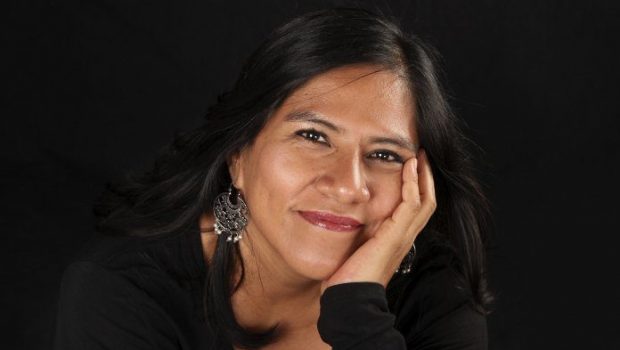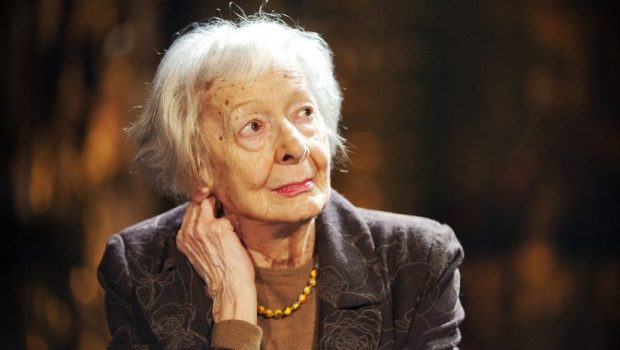Dreams in Times of War
La locas ilusiones
Oswaldo Estrada
Leaving is no problem. It’s exciting actually;
… it’s a drug. It’s the staying gone that will kill you.
— Daniel Alarcón, “Absence”
Those days were uncertain. Full of shadows and eternal nights. Lit by kerosene lamps and thin, lean candles. The electricity would go off when the main characters of the soap opera were about to kiss, and people would grab any containers they could lay their hands on to fill them with water. Pots and jugs, plastic buckets and bottles, before the pipes were completely dry. We dreamed about going far away. In a train or boat, but especially by plane. To see the world from the sky.
“I’m going to show up at the consulate until they get sick of me. Those gringo pricks will give me a visa, if only to never have to lay eyes on me again. They can give me one that’s good for a week. For a day, if they want. I swear to God, I’ll grab my bags and leave forever.”
Uncle Lucho was like that. He wouldn’t admit defeat, even if they’d already rejected his visa application four times.
“What makes you think they’ll give it to you this time?” Aunt Elisa asked, trying to make him listen to reason.
He had a gut feeling. He wanted to leave like the other hundreds and thousands who’d fled to the United States, Spain and Japan.
“If they don’t open the door for you, you’ll get in through the window,” a Chilean fortune teller had promised him, two years earlier, in Miraflores. “Your destiny is over there. I see it in the cards. You’ll go, and you won’t come back.”
That’s why he assured me over lunch that our future awaited in Los Angeles or New York. “We have family there,” he argued passionately. “Friends. And you have an American passport, sobrino. A safe-conduct out of this inferno.”
I knew I had been born in this country, but the probabilities of moving here were remote. What money did we have to undertake that journey? My father lived somewhere in the United States, but he was a ghost, a myth. Only once or twice a year did he send a one-hundred-dollar bill to his mother’s house, wrapped in aluminum foil, to cover six months of late child support. What money did we have, if my mother already had to work wonders to stretch her salary? Teaching English at a school. Giving private lessons at students’ homes. Creating summer courses in order to buy our school supplies, uniforms and shoes to start the year.
We were at war. We stood in endless lines to receive a few staples every two weeks or once a month. We drank powdered milk and ate government-issued bread. Paltry and brown. We walked quickly, glancing all around us. Always careful to not miss curfew. Fearful that the next bomb might explode on our street. Or in front of the police station. At the door of the school.
“Why don’t we leave, mamá?”
“Life over there isn’t as easy as your uncle makes it out to be,” she’d answer uneasily, distant. Without leaving an opening for my rejoinder. If she hadn’t been able to make it with her teenage sweetheart by her side, how would she start from zero now, separated, and with two children?
I knew the story by heart. My father’s job parking cars at a restaurant. Their arguments. Their few moments of leisure. Watching films in their car, at the drive-in movies. Or eating hamburgers with other Peruvians who were in the same boat. Or worse. Living collectively, working like animals. I’d heard the story so many times that I could picture them at twenty, in their pitched battle. Alone. Suffering extreme weather. And my mother crying, wanting to return. Regretting having left her studies in Lima to follow him. Walking down a long avenue with a belly seven, eight, nine months swollen. Struggling because she didn’t know how to do anything. Or scared of doing it all wrong.
I knew it, and it pained me. But I continued my campaign, like an unhealthy obsession. Adapting my pleas, my promises, solving every problem like Punky Brewster or Webster, the kids in the American series we loved from afar. “Let’s go, mamá. I can work, too. Over there, kids earn money helping old people at the supermarket, selling lemonade in front of their houses, washing their neighbors’ cars. And you speak English. You can work anywhere.”
She always repeated the same thing. That I shouldn’t insist. That I should leave her alone. Until the day we went back to live with her parents, and she promised to renew my passport. So I’d quit nagging. Or because deep down it’s what she actually wanted, although it terrified her to return to a tiny apartment, like the one where she’d learned how to suffer in excess.
After so many years, it wasn’t easy to prove at the American consulate that the newborn in the photograph was me. Because they’d broken up and gotten back together every three or four months, coming and going from her parents’ house to her in-laws’, fighting almost to death over a Panasonic TV—the only material item from their time in Anaheim—my parents had forgotten to legally register my birth outside of the country.
“He’s American,” they mentioned with pride at every family gathering, as if my footprints in a foreign document could deliver me from all evil.
“Any day he likes, he’ll catch a plane and leave,” Uncle Lucho pronounced, winking at me as if he were plotting something.
I agreed with my uncle, a lanky man with coke-bottle glasses and a half-balding head. A dreamer like no other. That’s why I told my friends that any day now I’d be leaving. That maybe next year I’d no longer be with them.
“You’re so lucky,” Amelia would say, when she heard my plans in the schoolyard. “What I wouldn’t give to be born over there in your country, and not in Huancayo.”
I liked her freckles, her colored pencils, that sweet little Andean voice of hers. We laughed together about everything. About our civics teacher, Profe Ordóñez, who showered us with spit whenever he taught class, or González, the fat and happy gym teacher whose t-shirt always hiked up above his navel.
“I’ll write you every month,” I promised. “And when I come back on vacation, I’ll bring you a suitcase full of presents.”
“You swear to me, Saravia?”
I never imagined how hard it would be to renew my American passport. Or to leave Peru after having lived there illegally for almost fourteen years.
“Illegally?”
“Yes, ma’am,” the immigration agent restated. “Your son entered the country with a ninety-day permit.”
“That’s ridiculous. We’re Peruvian.”
“If you want to legalize his status, you’ll have to pay the taxes accrued during all these years.”
My mother had a panic attack when she calculated the thousands and millions of intis she owed for not registering me in time. “If only we’d stayed there,” she suddenly sighed. “If I’d been more daring. We’d have a different life. We’d be independent.” And between sobs, she convinced herself all over that she’d done the right thing. “How could I stay there alone, and with a sick child? Your brother wouldn’t have been born. You would have grown up without your grandparents. With me working all day, doing who knows what, and you in a daycare. Or in the hospital. With tubes and masks so you could breathe.”
It was my fault. Or Uncle Lucho’s, for having put ideas in my head. And I’d have to pay, being stuck there forever. Like my brother, who had been born on native soil. Like all my friends who dreamed of moving to the United States to visit Disneyland, to climb the steep hills of San Francisco. I’d be stuck without eating pizza on a street corner, standing in the freezing cold. Without yelling for a cab in a city full of tall buildings. Without ever boarding a yellow school bus.
I cursed the day it had crossed my mind that we could leave. If our situation had been tight before, now we owed the goddamned State. And just for having been born in a gringo hospital.
My brother consoled me, as if they’d soon cart me off to jail. He gave me his animal crackers. His stickers. Sweets. The same way he’d leave presents on my bed when he saw me sick, coughing until I was drowning, barely breathing. “What if tío is right?” he’d ask in the darkness of our room. “What if he could sneak you out through Chile or Ecuador?”
“Stop that nonsense, Lucho. Only you would think of something like that,” my grandfather scolded from the kitchen. “Who do you think you are? MacGyver? Indiana Jones? Get to work and no more foolery.” But he insisted that he could get me out through Huaquillas or Arica. He’d smuggle me to one end of the country or the other. And he’d camouflage me in a shipping truck, hidden under a seat. Or in the trunk of a car. Just like in an action movie.
In the end, it wasn’t necessary. Greasing palms here and there, with a gold watch, a Lomo de Corvina bracelet, a solitaire on a chain, my grandmother achieved the unimaginable. Not only was an entry stamp added to my brand-new American passport, but a second, dark crimson seal was issued by the Headquarters of Immigration and Naturalization, authorizing my exit from the country “for having concluded my stay.”
Nobody could believe that after months of racking our brains and sniveling, my grandmother María had made it happen the way things had always been done her entire life. Talking with a paisano. Asking a cousin for a favor. Explaining the situation to a coronel and handing out gifts each step of the way.
We had a big celebration, passing the passport from hand to hand like a talisman, applauding my grandmother for solving the problem her way, the way it’s done in the Andes. Toasting my future. Planning a party. Until someone realized that I’d have to leave the country within fifteen days.
My mother started to backpedal. Fifteen days? With all my paperwork, she hadn’t processed her own documents, nor my brother’s. She’d have to prove financial solvency, produce bank statements, property titles and other papers that, of course, she didn’t have. In addition, she needed the authorization of the children’s court judge so my brother could leave the country, signed in person by both parents. Because legally they were still married, and there was nothing to prove that my father had left Peru years before.
I don’t know how I managed to convince her. Or if everyone interceded on my behalf. I didn’t go on a hunger strike, like she had, when my grandparents had opposed her marriage to her sweetheart in the United States. I didn’t slam doors. I didn’t even cry, like she’d cried, until her father had bought her a plane ticket, preferring to see her alive, albeit faraway, and not nearby and dead, like Aunt Juana María who died of love, according to the family, or tuberculosis, as stated on her death certificate.
When she found me in the bedroom, her mind was already made up. Her face washed and serene. “Your grandparents are going to buy you a ticket. And you’ll take my savings. As a precaution. In case of an emergency.” I’d go to Carolina’s house, her friend who had always volunteered to host us. Or to a cousin’s, in southern Florida. Just for a few months, while she regularized her situation, and my brother’s.
There was no time to lose. I needed a suitcase, new clothes. I had to update my vaccines, obtain a certificate proving my completion of three years of middle school in order to enroll in an American high school. Cut my hair. Change the frames of my glasses that were about to break.
The last thing we needed was a medical document to prove that I hadn’t caught cholera, which was reaping lives up and down the coast. That’s when my father called on the phone. Just like that. Out of the blue.
He’d found out through my grandmother Lina that everything was ready for my trip, and he wanted to be the one to take me in. I could stay with his sister Graciela in Miami for a couple of weeks. And she would personally take me to Los Angeles. “It’s the best option,” he insisted, his voice completely unfamiliar to me. “How are you going to send him off to a cousin if he has me? Let me prove to you that I’ve changed,” he begged. “And I promise to help you with the papers. I’ll go sign whatever’s needed. To bring you both here.”
It was very unlikely that I had caught the cholera bacteria. We boiled our water before drinking it; we washed everything with soap. We avoided fish and raw vegetables. But after that phone call, I began to experience the symptoms they repeated on the radio and television. Nausea. Vomiting. My stomach was a mess. My body ached.
“It’s your decision.”
“And what do you think?”
“I no longer know what’s best.”
I understood the gravity of the situation when we arrived at Callao. Due to the most recent terrorist attacks, only passengers with a ticket and passport in hand could enter the airport. Everyone was outside, crying on the sidewalk. At the entrance to the parking lot. Making last minute requests. Kissing each other with urgency in front of the security guards, armed and intimidating. Stony in the face of others’ pain.
I would have liked to say goodbye to my friends from school. If only Amelia Ojeda, Acosta or Fernández could have been there. Kathy Lázaro. David Barrera. But I traveled the afternoon of the 28th of February. We were on vacation, and there was no way to let them know.
At Aunt Elisa’s house, the family said goodbye to me the day before I left. With heartfelt speeches and stories, humitas de choclo, an orange cake and the usual snacks. Crackers with butter. Olives and fresh cheese on toothpick skewers. Songs by Wilfrido Vargas and Juan Luis Guerra were all the rage. We took happy pictures, two at a time, in groups of four, in front of the table. The adults with a glass in their hands while we made faces. We swore to write each other always. And not cry.
My grandfather had a knot in his throat. He rested my suitcase on the ground. He hugged me the tightest he could without breaking inside and he said goodbye, telling me to be brave and not feel sad for them. El papá Carlos. Always looking after his children and grandchildren. Paying school tuitions, making sure there was enough food on the table. Reserved. Proper.
My brother was happy for me. He asked me to send him a Nintendo and a skateboard. To call from time to time so he could tell me about the people in our neighborhood. He gave me a lemon candy. “So you can suck on it way up there. When you’re flying.”
“I’m not asking anything of you, sobrino, because in a couple of months I’ll be there myself. These gringos are no match for me.” Uncle Lucho always cracked me up. “Even if I have to go by land, I’m leaving. With my little backpack and tennis shoes.”
My grandmother María interrupted him to tell me to step off the plane with my right foot first. With her superstitions, she had saved her family. Never taking the trash out at night. Interpreting dreams. Touching hunchbacks on the street and believing that if you see a man in the morning walking with a limp, it will bring good luck. “You don’t trust me? You better believe this old lady who knows her witchcraft. Remember to step off with your right foot, and don’t you take off the red string tied around your wrist.” She didn’t cry because a mother’s tears are bad for her children. And she had paid a high price for not learning this in time.
I don’t know how many more steps I took inside the airport with my mother. As a minor, she could enter with me, but only as far as the first AeroPerú counter, where they checked my documents and we said goodbye. She was skinny, like she was when she left to get married in the United States. She wanted to cry all alone. In bed and with the lights off. Pretending she had a migraine. But she acted strong. I was her source of pride. The son who had cost her so much. Because of my weak lungs. Because of her constant fear of losing me. “Now there’s no turning back,” she managed to tell me before stepping through the door, like her father had told her fifteen years earlier when he said goodbye to her at that same airport. “I’ll join you in a month. Bundle up, hijo. Don’t drink anything too cold. Take care of yourself…”
I couldn’t make out all of her instructions, but I understood there was no return when the airplane rose over Lima. Below were the desolate hills. The year-round dust and drizzle. Flat roofs heaped with old chairs, brooms, bricks and sticks. The voices from recess and the market stayed behind. Las Perdices Street and Santa Rosa Avenue where I had lived illegally for so many years. And my place at the table, and my spot when the bell rang for us to line up.
Like anyone from the countryside who leaves his small hometown for the first time, on route to the big city, I clung to my personal belongings the entire trip. I don’t know how many times I checked to make sure that the money my mother and grandparents had given me was still sewn inside my pants pockets. And I just sat there. The one time I stood up to go to the bathroom, I took my passport, birth certificate, school documents and the paper stating that I didn’t have cholera. I had grown up in a world that was so violent, where child delinquents robbed their victims of everything but their underwear, with holdups at any time of day, muggings in buses, that I thought I’d be robbed mid-flight. Which is why I didn’t speak with the people sitting on either side of me, a man with a large stomach and an old lady with tricolored hair, although they insisted on knowing who I was, where I was going, and why I was traveling without my parents.
Pretending I was asleep, I remembered that in sixth grade, they had taken us to the same international airport from which we had departed that afternoon. They had us sit in a plane where they told us about Jorge Chávez, the most revered hero of Peruvian aviation who crashed in Italy, after making the first air crossing of the Alps in 1910. We got there on a rickety bus with flimsy seats, decorated with signs reading No smoking, There is room at the back, Offer your seat to seniors, Ring the (nonexistent) buzzer to request a stop. We were seated in a Faucett airplane and served a light snack, on plastic trays, as if we were playing house with the pilot and stewardesses. We didn’t go anywhere. They only turned the turbines on for a few seconds, before throwing us out. Because we were rude. Disrespectful.
The oldest students in the class had started singing La gallina turuleca when the captain was talking about turbulence, oxygen masks, emergency exits. The teacher’s whacks and raps to our heads as a way to bring order to the plane only sent us into fits of laughter. And then paper projectiles, sweaters and napkins began flying through the cabin. Seeing there was no going back, Valverde began clamoring to be saved. “The plane is falling,” he screamed. “We’re going to die right here.” And we yelled with him as the wind broke our wings and we fell, like the illustrious Peruvian pilot, on Italian soil. We crashed together on the runway and were punished in the principal’s office.
The world was transformed when the airplane began its descent over Florida. It was nighttime. I had never seen so many lights shining at the same time. In Lima, the bulbs on the posts that weren’t smashed by rocks glowed a depressing yellow. This was completely different. Colorful lights. Radiant. Beautiful. Placed by invisible hands on the night stage.
When I departed the airplane, I followed the people who walked hurriedly in one direction. I reached the place where they check passports and told my story to the immigration officer. Dying of fright. Thinking he would question the veracity of my words. Of my citizenship. Like in Lima. I don’t know where he was from, but his demeanor was friendly. As if he’d always known me and truly knew everything that had happened up until that moment when I stood facing him. Welcome home, was the only thing he said. And I understood that I had permission to follow the path of white lines painted on the floor. I walked a long way, trailing the other passengers, turning right and left. Resolute in my stride. With my heart pounding and on the verge of tears. Because having rehearsed so carefully the story of being Peruvian-American, or an American raised in a country with too few lights and too much violence, I’d forgotten the secret to winning this war: to step out with my right foot first when exiting the plane.
-Image from The Library of Congress
 Oswaldo Estrada (Santa Ana, California, 1976) is a Peruvian-American writer. He is the author of a children’s book, El secreto de los trenes (2018), and of three collections of short stories, Luces de emergencia (Valparaíso Ediciones 2019, 2020; Maquinaciones Narrativa, 2021), Las locas ilusiones y otros relatos de migración (Axiara, 2020), and Las guerras perdidas (Sudaquia 2021). He edited the volume of stories Incurables. Relatos de dolencias y males (Ars Communis, 2020) with contributions by twenty Latin American authors who live in the US. In 2020, he won two International Latino Book Awards, as well the International Latino and Latin American Book Fair Prize from Tufts University. In 2021, he was a finalist for the Doris Betts Fiction Prize. He is a professor of Latin American Literature at the University of North Carolina at Chapel Hill.
Oswaldo Estrada (Santa Ana, California, 1976) is a Peruvian-American writer. He is the author of a children’s book, El secreto de los trenes (2018), and of three collections of short stories, Luces de emergencia (Valparaíso Ediciones 2019, 2020; Maquinaciones Narrativa, 2021), Las locas ilusiones y otros relatos de migración (Axiara, 2020), and Las guerras perdidas (Sudaquia 2021). He edited the volume of stories Incurables. Relatos de dolencias y males (Ars Communis, 2020) with contributions by twenty Latin American authors who live in the US. In 2020, he won two International Latino Book Awards, as well the International Latino and Latin American Book Fair Prize from Tufts University. In 2021, he was a finalist for the Doris Betts Fiction Prize. He is a professor of Latin American Literature at the University of North Carolina at Chapel Hill.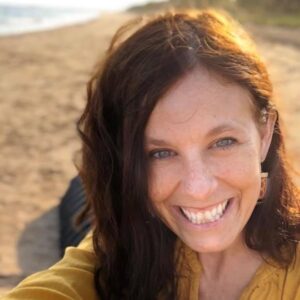 Sarah Pollack has published many literary translations from Spanish to English of authors including Juan Villoro, Fabio Morábito, Enrique Fierro, Cristina Peri Rossi and Ida Vitale in journals such as Words Without Borders, Bomb, Gulf Coast, The Brooklyn Rail’s InTranslation, Reunion: The Dallas Review, and International Poetry Review. She has published translations of the collections of poetry Reason Enough (Host Publications, 2007) by Uruguayan poet Ida Vitale, Eloise (Unicorn Press, 2015) by Mexican Silvia Eugenia Castillero, as well as the novellas Passages (Chatos Inhumanos, 2018) by Argentine Mariana Graciano, and An Evocation of Matthias Stimmberg (Wakefield Press, 2021) by Mexican author Alain-Paul Mallard. She is an associate professor of Latin American literature and translation studies at the College of Staten Island and The Graduate Center, CUNY.
Sarah Pollack has published many literary translations from Spanish to English of authors including Juan Villoro, Fabio Morábito, Enrique Fierro, Cristina Peri Rossi and Ida Vitale in journals such as Words Without Borders, Bomb, Gulf Coast, The Brooklyn Rail’s InTranslation, Reunion: The Dallas Review, and International Poetry Review. She has published translations of the collections of poetry Reason Enough (Host Publications, 2007) by Uruguayan poet Ida Vitale, Eloise (Unicorn Press, 2015) by Mexican Silvia Eugenia Castillero, as well as the novellas Passages (Chatos Inhumanos, 2018) by Argentine Mariana Graciano, and An Evocation of Matthias Stimmberg (Wakefield Press, 2021) by Mexican author Alain-Paul Mallard. She is an associate professor of Latin American literature and translation studies at the College of Staten Island and The Graduate Center, CUNY.
©Literal Publishing. Queda prohibida la reproducción total o parcial de esta publicación. Toda forma de utilización no autorizada será perseguida con lo establecido en la ley federal del derecho de autor.
Las opiniones expresadas por nuestros colaboradores y columnistas son responsabilidad de sus autores y no reflejan necesariamente los puntos de vista de esta revista ni de sus editores, aunque sí refrendamos y respaldamos su derecho a expresarlas en toda su pluralidad
Leaving is no problem. It’s exciting actually;
… it’s a drug. It’s the staying gone that will kill you.
–Daniel Alarcón, “Absence”
Eran días inciertos. De muchas sombras y noches eternas. Alumbradas por lámparas de querosene y velas delgadas, esbeltas. La luz se iba cuando los protagonistas de la telenovela estaban a punto de darse un beso y la gente corría a juntar agua en lo que fuera. En ollas y jarras, en baldes de plástico y botellas, antes de que los caños se secaran por completo. Soñábamos con irnos muy lejos. En tren o en barco, pero sobre todo en avión. Para ver el mundo desde el cielo.
—Me voy a presentar en el consulado hasta que se cansen de mí. Estos gringos jijunas me van a dar la visa, aunque sólo sea para no volver a verme. Que me la den por una semana. Por un día, si quieren. Y te juro por ésta que agarro mis chivas y me largo para siempre.
El tío Lucho era así. No se daba por vencido, aunque ya le habían negado la visa cuatro veces.
—¿Qué te hace pensar que te la van a dar esta vez? Preguntaba la tía Elisa para hacerlo entrar en razón.
Tenía esa corazonada. Quería irse como otros cientos y miles que huían a los Estados Unidos, a España, o a Japón.
—Si no te abren la puerta, te metes por la ventana, le había jurado una bruja chilena dos años antes en Miraflores. Allá está tu destino. Lo veo en las cartas. Te vas y no vuelves.
Por eso me aseguraba a la hora del almuerzo que nuestro futuro estaba en Los Ángeles o en Nueva York. Allá tenemos familia, alegaba con pasión. Amigos. Y tú tienes un pasaporte americano, sobrino. Un salvoconducto para salir de este infierno.
Yo sabía que había nacido en este país, pero la posibilidad de mudarnos acá era remota. ¿Con qué dinero emprenderíamos esa travesía? Mi padre vivía en algún lugar de los Estados Unidos, pero era un fantasma, un mito. Sólo una o dos veces al año enviaba a casa de su madre un billete de cien dólares, envuelto en papel platina, para cubrir seis meses de pensiones atrasadas. ¿Con qué dinero si mi madre hacía malabares para estirar el sueldo? Enseñando inglés en un colegio particular. Dando clases a domicilio. Inventándose cursos de verano para comprarnos útiles escolares, uniformes y zapatos para comenzar el año.
Eran tiempos de guerra. Hacíamos colas interminables para recibir unos cuantos víveres cada quince días o un mes. Tomábamos leche en polvo y comíamos pan popular. Raquítico y moreno. Caminábamos de prisa, mirando a todos lados. Siempre pendientes de no violar el toque de queda. Temerosos de que la próxima bomba fuera a explotar en nuestra calle. Frente a una comisaría. En la puerta de la escuela.
—¿Y si nos vamos, mamá?
—La vida allá no es tan fácil como la pinta tu tío, contestaba distante, temerosa. Sin darme opción de réplica. Si no había podido salir adelante junto a su amor de adolescente, ¿cómo podría empezar desde cero, separada y con dos hijos?
Conocía la historia con puntos y comas. El trabajo de mi padre estacionando autos en un restaurante. Sus peleas. Sus pocos momentos de diversión. Viendo películas desde el auto, en un cine al aire libre. O comiendo hamburguesas con otros peruanos que estaban en las mismas. O peor. Viviendo en comuna, trabajando como bestias. Había escuchado la historia tantas veces que los podía imaginar a sus veinte años en una guerra campal. Solos. Aguantando climas extremos. Y a mi madre llorando, queriendo regresar. Arrepintiéndose de haber dejado sus estudios en Lima por irlo a buscar. Caminando por una larga avenida con una panza de siete, ocho y nueve meses. Sufriendo por no saber hacer nada. O atemorizada por hacerlo todo mal.
Lo sabía y me dolía. Pero volvía a la carga con una obsesión enfermiza. Modificando las súplicas, las promesas, resolviendo cualquier problema como lo hacían Punky Brewster o Webster, los niños de las series americanas a los que amábamos de lejos. Vámonos, mamá. Yo también puedo trabajar. Allá los niños ganan dinero ayudando a los mayores en el supermercado, venden limonada en la puerta de casa, lavan los carros de sus vecinos. Y tú hablas inglés. Puedes trabajar donde sea.
Ella repetía lo mismo de siempre. Que no insistiera. Que la dejara en paz. Hasta el día que regresamos a vivir con sus padres y prometió renovar mi pasaporte. Para que no siguiera con la cantaleta. O porque en el fondo deseaba lo mismo, aunque la aterrorizara volver otra vez a un departamento minúsculo, donde aprendió a sufrir de más.
No fue fácil comprobar en el consulado americano que el recién nacido de la foto era yo después de tantos años. Por pelearse y amistarse cada tres meses o cuatro, yendo y viniendo de casa de los padres a casa de los suegros, discutiendo a muerte por un televisor Panasonic, que era lo único material que les quedaba de su estancia en Anaheim, mis padres olvidaron registrar legalmente que había nacido en el extranjero.
—Él es americano, comentaban con orgullo en cualquier reunión familiar, como si las huellas de mis pies en un documento foráneo pudieran librarme de todo mal.
—El día que quiera toma un avión y se va, sentenciaba el tío Lucho, guiñándome un ojo. Con total complicidad.
Yo le daba la razón al tío, espigadito, con sus lentes culo de botella y medio calvo. Soñador como ninguno. Por eso comentaba con mis compañeros que cualquier día me iría. Que tal vez el año entrante ya no estaría con ellos.
—Qué suerte tienes, me decía Amelia, cuando oía mis planes en el patio del colegio. Ya me hubiera gustado nacer allá en tu tierra y no en Huancayo.
Me gustaban sus pecas, sus lápices de colores y esa vocecita cultivada en la sierra. Nos reíamos de todo. Del profesor Ordóñez que nos escupía cuando daba la clase de Cívica o de González, el gordo feliz que enseñaba Educación Física con la camiseta levantada por encima del ombligo.
—Te voy a escribir todos los meses, le prometía. Y cuando vuelva de vacaciones te voy a traer una maleta llena de regalos.
—¿Me lo juras, Saravia?
Ni en sueños imaginaba lo mucho que costaría renovar mi pasaporte americano. O salir del Perú después de haber vivido en la ilegalidad por casi catorce años.
—¿Ilegalidad?
—Sí, señora, le aclaró el agente de migraciones. Su hijo entró al país con un permiso de noventa días.
—Eso es ridículo. Nosotros somos peruanos.
—Si quiere legalizar su situación debe pagar los impuestos acumulados a lo largo de estos años.
Mi madre se arrancaba los pelos al cotejar los miles y millones de intis que debía por no haberme registrado a tiempo. Si nos hubiéramos quedado allá, suspiraba de repente. Si hubiera sido más audaz. Tendríamos otra vida. Seríamos independientes. Y entre un llanto y otro volvía a convencerse de haberlo hecho bien. ¿Cómo iba a quedarme allá sola y con un hijo enfermo? No hubiera nacido tu hermano. Hubieras crecido sin tus abuelos. Yo trabajando todo el día, quién sabe en qué, y tú en una guardería. O en el hospital. Con sondas y mascarillas para poder respirar.
Era mi culpa. O la del tío Lucho por meterme ideas en la cabeza. Y debía pagar quedándome allá para siempre. Como mi hermano que había nacido en el territorio patrio. Como todos mis amigos que soñaban con mudarse a los Estados Unidos para ir a Disneylandia, o subir y bajar por las calles de San Francisco. Me quedaría sin comer pizza en una esquina. De pie, en pleno frío. Sin pedir un taxi a gritos en una ciudad de grandes edificios. Sin subirme a un autobús amarillo.
Maldecía la hora en que se me ocurrió que podíamos irnos. Si antes andábamos ajustados, ahora debíamos. Al Estado y a la madre que lo había parido. Y todo por haber nacido en un hospital gringo.
Mi hermano me consolaba como si pronto me fueran a llevar a la cárcel. Me regalaba sus galletas de animalitos. Sus calcomanías. Alguna golosina. Del mismo modo en que dejaba en mi cama regalos cuando me veía enfermo, tosiendo hasta ahogarme, respirando con dificultad. ¿Y si el tío tiene razón? Me preguntaba en la oscuridad del cuarto. ¿Y si te saca por Chile o Ecuador?
—Déjate de tonterías, Lucho. Sólo a ti se te ocurre algo semejante, lo regañaba mi abuelo desde la cocina. ¿Quién te crees? ¿MacGyver? ¿Indiana Jones? Ponte a trabajar y no hables disparates. Él insistía en que podía sacarme por Huaquillas o por Arica. Me llevaría de contrabando hasta uno de los extremos del país. Y me camuflaría en un camión de mercaderías, debajo de un asiento. O en el maletero. Como en las películas de acción.
No hubo necesidad de hacerlo. Pagando aquí y allá, con un reloj de oro, una esclava Lomo de Corvina y una cadena con un brillante, mi abuela consiguió lo impensable. No sólo el traslado del sello de ingreso en mi flamante pasaporte americano sino un segundo sello granate expedido por la Dirección General de Migraciones y Naturalización, autorizando mi salida del país “por permanencia concluida”.
Nadie podía creer que después de meses de rompernos la cabeza y llorar por los rincones, mi abuela María lo hubiera logrado como se habían hecho las cosas toda la vida. Hablando con un paisano. Pidiéndole el favor a un primo suyo. Tratando el asunto con un coronel y entregando obsequios a cada paso.
Lo celebramos en grande, pasando el pasaporte de mano en mano como un talismán, aplaudiendo a la abuela por resolver las cosas a su manera, como en la sierra. Brindando por mi futuro. Planeando una fiesta. Hasta que alguien se dio cuenta que debía abandonar el país en quince días.
Mi madre se echó para atrás. ¿Quince días? Con tanto papeleo mío, no había tramitado sus propios documentos ni los de mi hermano. Debía demostrar solvencia económica, entregar estados de cuenta, títulos de propiedad y otros papeles que por supuesto no tenía. Necesitaba, además, una autorización del juez de menores para que mi hermano pudiera salir del país, firmada en persona por ambos padres. Porque legalmente seguían casados y no existía constancia alguna de que mi padre hubiera salido del Perú hacía años.
No sé cómo logré convencerla. O si todos intercedieron por mí. No hice huelga de hambre, como ella, cuando mis abuelos se opusieron a que se casara con su enamorado en los Estados Unidos. No tiré un portazo. Ni lloré siquiera, como hizo ella hasta que su padre le compró un boleto de avión, prefiriendo verla viva, aunque fuera lejos, y no cerca y muerta, como la tía Juana María. Muerta de amor, según la familia, o de tuberculosis, de acuerdo al certificado de defunción.
Cuando entró a buscarme al dormitorio, ya estaba decidida. Con la cara lavada y serena. Tus abuelos te van a comprar el pasaje. Y te vas a llevar mis ahorros. Como un seguro. Por cualquier emergencia. Iría a casa de Carolina, la amiga que siempre le había ofrecido recibirnos. O con una prima, en el sur de la Florida. Sólo por un par de meses, mientras ella regularizaba su situación y la de mi hermano.
No había tiempo que perder. Necesitaba una maleta, ropa nueva. Poner al día mis vacunas, obtener una constancia de estudios de mis tres años de secundaria para matricularme en un colegio americano. Cortarme el pelo. Cambiar el marco de mis lentes que estaban a punto de romperse.
Sólo nos faltaba un certificado médico, para comprobar que no había sido infectado por el cólera que venía cobrando vidas por toda la costa, cuando mi padre llamó por teléfono. Así. De repente.
Se había enterado por mi abuela Lina que todo estaba listo para mi viaje y quería hacerse cargo de mí. Me podía quedar con su hermana Graciela en Miami un par de semanas. Y ella misma me llevaría hasta Los Ángeles. Es lo mejor, insistía con una voz que yo desconocía. ¿Cómo vas a mandarlo con una prima si me tiene a mí? Déjame demostrarte que he cambiado, le rogaba. Y te prometo ayudarte con los papeles. Ir a firmar lo que sea. Para traerlos aquí.
Era poco probable que tuviera la bacteria del cólera. Hervíamos el agua antes de beberla, lavábamos todo con jabón. Evitábamos el pescado y las verduras crudas. Pero a partir de esa llamada comencé a sentir los síntomas que anunciaban por la radio y la televisión. Náuseas. Vómitos. Tenía el estómago destrozado. Dolores en el cuerpo.
—Es tu decisión.
—¿Y tú qué piensas?
—Yo ya no sé ni lo que es bueno.
Entendí la gravedad de la situación cuando llegamos al Callao. Debido a los últimos atentados, sólo los pasajeros con boleto y pasaporte en mano podían ingresar al aeropuerto. Todos lloraban en la vereda. Al pie del estacionamiento. Haciendo encargos de último minuto. Dándose besos urgentes frente a los guardias de seguridad. Armados y amenazantes. De piedra ante el dolor ajeno.
Hubiera querido despedirme de los amigos del colegio. Que estuvieran ahí Amelia Ojeda, Acosta o Fernández. Kathy Lázaro. David Barrera. Pero viajé un 28 de febrero por la tarde. Estábamos de vacaciones y no hubo modo de avisarles.
En la casa de la tía Elisa me despidieron un día antes de partir. Con discursos sentidos y anécdotas, humitas de choclo, un bizcochuelo de naranja y los bocaditos de siempre. Galletas con mantequilla. Palitos de aceituna y queso fresco. Estaban de moda las canciones de Wilfrido Vargas y Juan Luis Guerra. Nos tomamos fotos felices de dos en dos, en grupitos de cuatro, frente a la mesa. Los mayores con una copa en la mano y nosotros haciendo muecas. Juramos escribirnos siempre. Y no llorar.
Mi abuelo tenía un nudo en la garganta. Puso mi maleta en el suelo. Me abrazó lo más fuerte que pudo sin quebrarse por dentro y me despidió pidiéndome que fuera valiente y no tuviera pena por ellos. El papá Carlos. Siempre pendiente de sus hijos y nietos. De pagar las pensiones del colegio, de que no faltara nada en la mesa. Callado. Correcto.
Mi hermano estaba feliz por mí. Me encargó que le mandara un Nintendo y un skateboard. Que lo llamara de vez en cuando para que me contara de la gente del barrio. Me regaló un caramelo de limón. Para que lo chupes allá arriba. Cuando estés volando.
—Yo no te pido nada, sobrino, porque en un par de meses estoy allá. Estos gringos no van a poder conmigo. El tío Lucho era un mate de risa. Aunque sea por tierra me voy. Con mi mochilita y mis zapatillas.
La abuela María lo interrumpió para pedirme que pisara con el pie derecho al bajar del avión. Con sus supersticiones había sacado adelante a la familia. Evitando tirar la basura de noche. Interpretando los sueños. Tocando jorobas por la calle y pensando que cruzarse con un cojo en la mañana daba buena suerte. ¿No me crees? Créele a esta vieja que sabe de sus brujerías. Acuérdate de pisar con el pie derecho y no te quites el lazo rojo de la muñeca. No lloró porque las lágrimas de una madre son malas para los hijos. Y había pagado con creces no saberlo a tiempo.
No sé cuántos pasos más di con mi madre dentro del aeropuerto. Como era menor de edad, pudo entrar conmigo, pero sólo hasta el primer mostrador de AeroPerú, donde revisaron mis documentos y nos despedimos. Era flaquita, como cuando vino a casarse a los Estados Unidos. Quería llorar a solas. En la cama y con las luces apagadas. Fingiendo una migraña. Pero se hizo la fuerte. Era su orgullo. El hijo que tanto le había costado. Por mis bronquios débiles. Por el temor de perderme a cada paso. Ahora no hay vuelta atrás, alcanzó a decirme antes de cruzar la puerta, como le dijera su padre quince años antes al despedirla en ese mismo aeropuerto. En un mes estoy contigo. Abrígate, hijo. No tomes bebidas heladas. No hagas desarreglos…
No alcancé a oír todos sus encargos, pero entendí que no había retorno cuando el avión se elevó por encima del suelo limeño. Abajo quedaron los cerros pelados. El polvo y la garúa de todo el año. Los techos con su ruma de sillas viejas, escobas, ladrillos y palos. Las voces del recreo y el mercado. La calle de Las Perdices y la Avenida Santa Rosa donde había vivido ilegal por tantos años. Y mi lugar en la mesa. A la hora de la formación.
Como todo provinciano que sale por primera vez de su patria chica rumbo a la ciudad, no me desprendí de mis objetos personales en todo el viaje. Revisé no sé cuántas veces que el dinero de mi madre y mis abuelos siguiera cosido a los bolsillos del pantalón. Y me puse a esperar. La única vez que me paré para ir al baño fui con mi pasaporte, mi partida de nacimiento, mis certificados de estudios y la constancia de que no tenía cólera. Había crecido en un mundo tan violento, de niños delincuentes que dejaban a sus víctimas en calzoncillos, atracos a todas horas y asaltos en el autobús, que pensaba que me iban a robar en pleno vuelo. Por eso tampoco hablé con mis vecinos de asiento, un señor barrigón y una viejita con el pelo de tres colores, aunque insistieran en saber quién era, a dónde iba y por qué viajaba sin mis padres.
Haciéndome el dormido, me acordé que en sexto de primaria nos llevaron al mismo aeropuerto internacional de donde habíamos salido esa tarde para subirnos a un avión y hablarnos de Jorge Chávez, el héroe máximo de la aviación peruana que se estrelló en Italia, después de cruzar los Alpes por primera vez en 1910. Llegamos en un ómnibus destartalado, de asientos precarios, decorado con anuncios de No fumar, Al fondo hay sitio, Ceda el asiento a los mayores, Toque el timbre (inexistente) para bajar. Nos sentaron en un avión de Faucett y nos sirvieron un refrigerio diminuto, en bandejitas de plástico, como si estuviéramos jugando a la casita con el piloto y las aeromozas. No fuimos a ninguna parte. Sólo encendieron las turbinas por unos instantes, antes de bajarnos a patadas. Por malcriados. Irrespetuosos.
Los más viejos del salón se habían puesto a cantar La gallina turuleca cuando el capitán estaba hablando de las turbulencias, las mascarillas de oxígeno, las salidas de emergencia. Nos dio un ataque de risa con los cocachos y sopapos que repartía nuestra maestra para poner orden en el avión. Y entonces empezaron a volar en la cabina los proyectiles de papel, las chompas y las servilletas. Al ver que estábamos perdidos, Valverde se puso a pedir auxilio. Se cae el avión, gritaba. Nos vamos a morir aquí mismo. Y nosotros gritamos con él cuando el viento rompió nuestras alas y caímos, como el insigne piloto peruano, en tierras italianas. Estrellados en la pista de aterrizaje. Castigados en la dirección.
El mundo se hizo otro cuando el avión comenzó a descender sobre La Florida. Era de noche. Nunca había visto tantas luces encendidas a la vez. En Lima los focos de los postes que no estaban quebrados de una pedrada alumbraban con un amarillo deprimente. Esto era otra cosa. Luces de colores. Radiantes. Hermosas. Distribuidas por manos invisibles en el escenario de la noche.
Al bajar del avión seguí a las personas que caminaban apuradas en una sola dirección. Llegué al lugar donde revisan los pasaportes y le conté mi historia al oficial de inmigración. Muerto de miedo. Pensando que cuestionaría la veracidad de mis palabras. Mi ciudadanía. Como en Lima. No sé de dónde era, pero adoptó una actitud amable conmigo. Como si me conociera de siempre y en verdad supiera todo lo que había pasado hasta plantarme frente a él. Bienvenido a casa, fue lo único que dijo. Y yo entendí que podía seguir el camino marcado por las líneas blancas pintadas en el piso. Caminé un trecho largo, siguiendo a los otros pasajeros, doblando a la derecha y a la izquierda. Pisando firme. Con el corazón a todo trote y a punto de llorar. Porque de tanto ensayar el cuento de ser peruano americano, o americano criado en un Perú de pocas luces y violencias, olvidé lo más importante para ganar esta guerra: pisar con el pie derecho al bajarme del avión.
-Imagen de The Library of Congress
 Oswaldo Estrada es narrador, ensayista y profesor de literatura latinoamericana en la Universidad de Carolina del Norte en Chapel Hill. Es autor de varios libros de crítica literaria y cultural, como Troubled Memories: Iconic Mexican Women and the Traps of Representation (SUNY, 2018; 2019 Choice Outstanding Academic Title Award). Sus cuentos han aparecido en antologías y revistas de Estados Unidos, América Latina y Europa. Suyos son El secreto de los trenes (UAM, 2018), basado en “El guardagujas” de Juan José Arreola, y el libro de cuentos Luces de emergencia (Valparaíso, 2019, International Latino Book Awards 2020). Es editor y co-autor de Incurables. Relatos de dolencias y males (Ars Communis, 2020, International Latino Book Awards 2020). Su libro Las locas ilusiones y otros relatos de migración (Axiara, 2020) ganó el Primer Premio de Testimonio de la Feria Internacional del Libro Latino y Latinoamericano en Tufts 2020. Su libro de cuentos más reciente es Las guerras perdidas (Sudaquia, 2021).
Oswaldo Estrada es narrador, ensayista y profesor de literatura latinoamericana en la Universidad de Carolina del Norte en Chapel Hill. Es autor de varios libros de crítica literaria y cultural, como Troubled Memories: Iconic Mexican Women and the Traps of Representation (SUNY, 2018; 2019 Choice Outstanding Academic Title Award). Sus cuentos han aparecido en antologías y revistas de Estados Unidos, América Latina y Europa. Suyos son El secreto de los trenes (UAM, 2018), basado en “El guardagujas” de Juan José Arreola, y el libro de cuentos Luces de emergencia (Valparaíso, 2019, International Latino Book Awards 2020). Es editor y co-autor de Incurables. Relatos de dolencias y males (Ars Communis, 2020, International Latino Book Awards 2020). Su libro Las locas ilusiones y otros relatos de migración (Axiara, 2020) ganó el Primer Premio de Testimonio de la Feria Internacional del Libro Latino y Latinoamericano en Tufts 2020. Su libro de cuentos más reciente es Las guerras perdidas (Sudaquia, 2021).©Literal Publishing. Queda prohibida la reproducción total o parcial de esta publicación. Toda forma de utilización no autorizada será perseguida con lo establecido en la ley federal del derecho de autor.
Las opiniones expresadas por nuestros colaboradores y columnistas son responsabilidad de sus autores y no reflejan necesariamente los puntos de vista de esta revista ni de sus editores, aunque sí refrendamos y respaldamos su derecho a expresarlas en toda su pluralidad


